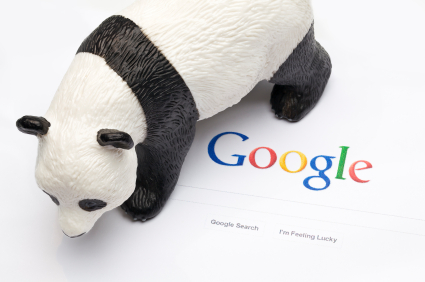Finally Google have announced something that we in the SEO industry have been expecting for some time – a penalty for websites who purposely over-optimise in an unscrupulous, non-user friendly way. This news shouldn’t come as a complete shock to marketers; Google have been hinting toward their desire to make the web a ‘better place’ ever since the very first Panda update back in February 2011.

Matt Cutts, head of Google’s search spam team was encouraged to mention the new policy early of its release thanks to a well worded question from the audience during a panel discussion at SXSW in the US. Speaking alongside Search Engine Land’s Editor-in-Chief on the topic of ‘Dear Google & Bing: Help me rank better’ an audience member asked:
“With so many SEO companies showing up claiming to do SEO, a lot of markets are getting saturated with optimized content… Are you pretty much out of luck if you’re not optimizing your site but it has relevant content? If I’m a mom or pop and I’m trying to optimize a site by myself, I’m going to get beat by people paying thousands of dollars” [sic]
Cutts responded to the question by explaining that Google’s team are actively working on a new penalty for websites that over-do their SEO – one that could be released in a matter of weeks. Back in 2009 Google specifically said no such penalties existed however it seems they have now decided that there is no other option but to tackle the problem of overly aggressive SEO practices head on.
The purpose of the penalty, as Cutts describes it, was to ‘level the playing field’ amongst sites and to give sites with good quality content a better chance to rank highly. No longer will the sites that simply ‘spam’ links all over the web be able to rank above sites who dedicate time to creating great quality content.
In the transcript I read Cutts specifically mentions targeting those SEO’s who are purposely trying to distort the results and who do it ‘for lack of a better world’. Time and time again Google are pushing the point that they want to make the web a better place and that over aggressive SEO is not appreciated – especially when people are building links using low quality content that benefits no one. People who are keyword stuffing their content at the cost of human readers are top of the hit list – along with those who engage in too many link exchanges.
Savvy SEO’s knew this was coming and have worked to focus on consumer-centric, ‘white hat’ SEO techniques. The irony is that these techniques have always worked as well, if not better than ‘black hat’ SEO which only ever delivered short term results.
Cutts explained that Google wants a “smarter GoogleBot”, one that is looking for relevance and intelligent, natural looking links between websites. He also suggested that they are aiming to enable the Bot to be able to react to good content and not just to recognise traditional SEO signals like the number of backlinks a website has (quality links or otherwise). Basically, if your site isn’t optimal from an SEO point of view, the new algorithm should be able to attribute some value to the effort you put into developing good content regardless.
So what now?
For some time now Google has been telling us to optimise our websites for humans and NOT for search engines. This penalty is the culmination of all those warnings. Google wants to reward content driven websites that make the user experience better. As Cutts puts it:
“Make a compelling site. Make a site that’s useful. Make a site that’s interesting. Make a site that’s relevant to people’s interests”.

It should also be noted that Google is not against SEO in general – Cutts previously clarified this point saying:
“SEO can often be very helpful. It can make a site more crawlable; it can make a site more accessible; it can think about the words users are going to type whenever they come to a search engine to make sure those words are on a page. The same things you do to optimize your return on investment and make sure things spread virally or socially are often the same things that work from a search engine perspective…but there are some people who take it too far. If you’re white hat or doing very little SEO, you’re not going to be affected by this change.”
This is the point, if you are putting customers back at the heart of your SEO – ensuring your link building efforts focus around social sharing and valuable content your site will be safe.
Jimmy McCann, Search Laboratory’s Head of SEO had this to say on the news:
“As long as you’ve been doing SEO ethically within the Google guidelines then you should not see a detrimental effect on your rankings. Matt Cutts referred directly to things like keyword usage and link exchanges – practices that they’ve been telling us not to over-do for some time.
“Like with anything in SEO it’s about getting a good balance, being too aggressive and overdoing one particular element isn’t natural and therefore if you had been getting away with such practices up to now, then it was only a matter of time before that door was closed for you.
“It will be interesting to see the impact this has on the SERP’s and the sites that fall foul of this change”.
All comments on this topic are welcomed – I have no doubt that in the next few weeks we will start to see people whose sites have been penalised starting forum conversations about their penalties – my question is only ‘how strong will those penalties be’?


